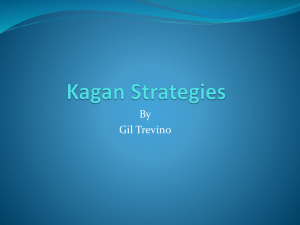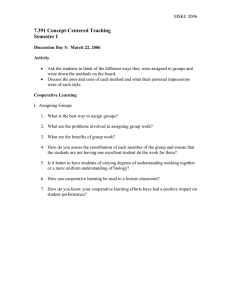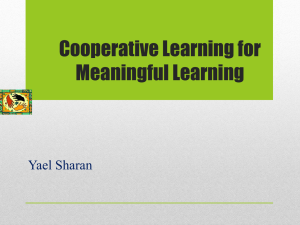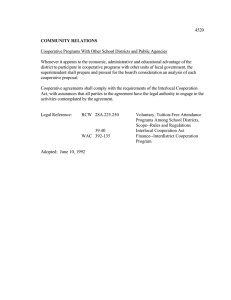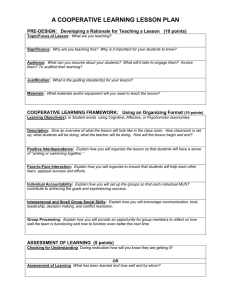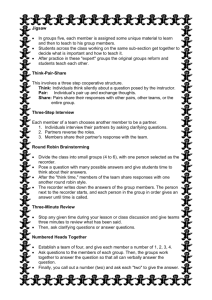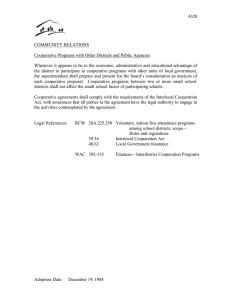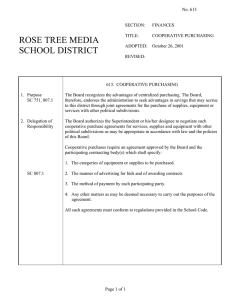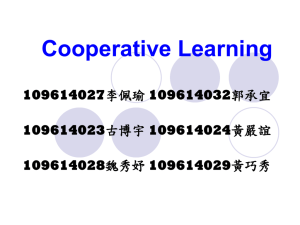Teaching Material
advertisement
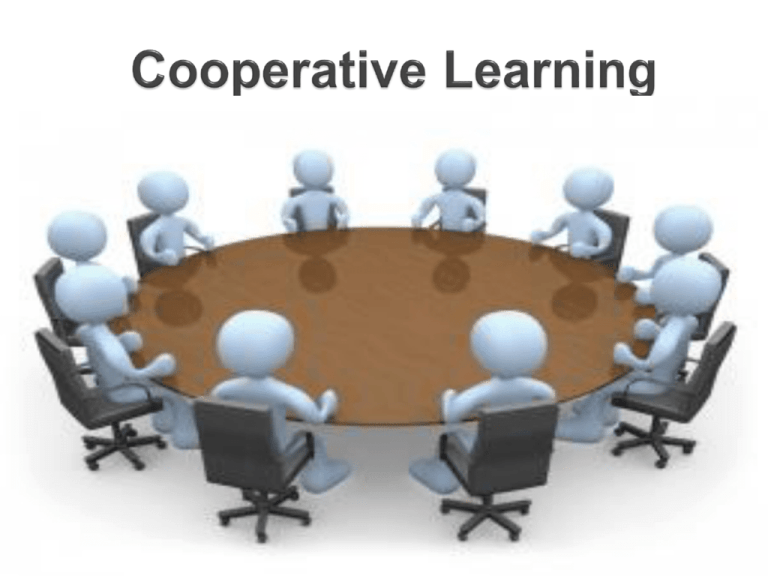
In order to learn, you must have a learning partner. Cooperative learning emphasizes a cooperative method of interaction among the students to enhance the learning process and to develop interpersonal and group skills. A successful teaching strategy in which small team, each with students of different level of ability, use a variety of learning activities to improve their understanding of a subject. Each member of the team is responsible not only for learning what is taught but also for helping teammates, thus creating an atmosphere of achievement. The teacher assign the group goal, outline the operational procedures, establishes the evaluative system and monitor group progress. The role of teacher is 1. Specify the instructional objective 2. Set the size of the group. Size depends on number of students, the resources available and kind of task 3. Name the group members. Normally group compositions should be heterogeneous by sex ability, leadership quality, and ethnic group. 4. Structure the physical arrangement of the classroom, consider movement patterns, separation of group and access to materials. 5. Make sure that suitable materials are available. 6. Explain the task, operational procedures, role expectations and evaluation criteria. 7. Monitor group 8. Evaluate the products of the groups. 1. 2. 3. 4. 5. 6. 7. 8. 9. Jigsaw Think-pair-share Three- step interview Round Robin Brainstorming Three- minute review Numbered head Team pair solo Circle the sage Partners Research shown has shown that cooperative learning techniques: Promote students learning and academic achievement Increase students interaction Enhance students satisfaction in learning Help students develop skills in oral communication Promote students self esteem Help to promote positive race relations.
